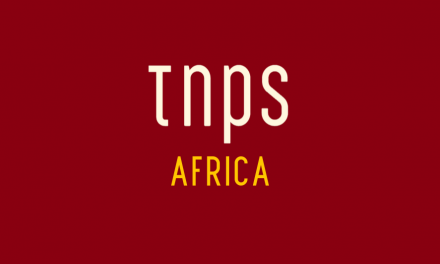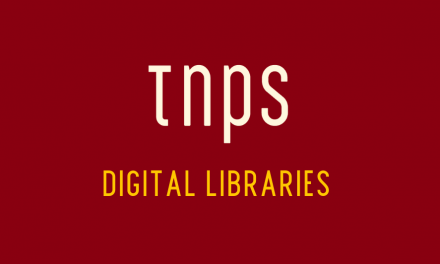Table of Contents
“Nobody is rewarding writers so nobody wants to write,” laments Morenike Taire over at Nigeria’s Vanguard, in a discussion about the latest Nobel Prize for literature.
Taire continues, “The level of literature that is available is therefore abysmal in nature. There is no competition, no inspiration, no encouragement … Most of the books in which Literature in English is being taught in Nigerian schools today are mostly badly written, poorly edited and poorly printed.”
Yet, as Taire says when referencing the absence of Nigerian winners of the Nobel prize recently, literature is subjective, so lets take the comments about the state of Nigerian school literature as opinion rather than unquestionable fact.
What interests me more here is the idea that there is no incentive to write.
In our rich western world existence with a Kindle store on every cyber-street corner it’s easy to overlook the fact that for most writers around the world getting published, let alone actually finding paying readers, is still a struggle.
KDP and similar free and easy self-publishing options we now take for granted are not options in Nigeria (Nigerians cannot buy ebooks from Amazon either). The America aggregators, while in theory an option, have such limited methods to receive royalties that few in the developing world can partake. The European aggregators PublishDrive and StreetLib (full disclosure: StreetLib is a sister site of TNPS publisher Antonio Tombolini Editore), with their international focus, are slightly more user-friendly when it comes to getting paid, but for most Nigerians the only realistic option are the local Nigerian ebook players like Okada Books, which simply don’t have the reach and clout of, say, KDP.
Until that changes many aspiring writers around the world remain disenfranchised, unable to distribute at home or abroad. This in turn means they write less, have less opportunity to hone their skills, and that in turn makes it less likely the next big prize winners will emerge from the less-developed nations.
But is does happen. As Taire points out, Nobel Prize winner Albert Camus was from Morocco. Nadine Gordimer was from South Africa. And way back in 1986 Africa’s first Nobel star, Wole Soyinka, was from Nigeria.
I haven’t made a study of the geography of Nobel winners, but my guess is they are likely to be in proportion to the number of quality writers a country produces, and that will be a function of the country’s education and social infrastructure, or lack thereof. Which inevitably leaves the less-developed countries at a disadvantage, but should not be seen as in any way discriminatory.
Nor should it be seen as honouring old-school writers. As we saw last year, when Bob Dylan was awarded the prize, the Nobel event can deliver surprises.
And as an aside to that, Nigeria’s Nobel winner Wole Soyinka was not overly impressed. “Since I’ve written quite a number of songs for my plays, I would like to be nominated for a Grammy.”
But this year the surprise was only that none of the favourites – Japan’s Haruki Murakami of Japan, Kenya’s Ngugi wa Thiong’o, Canada’s Margaret Atwood, or Israel’s Amos Oz made the final cut, with of course the Japan-born British author Kazuo Ishiguro taking gold.
But let’s end this post on Africa, since we began there.
As above, Kenya’s Ngugi wa Thiong’o was seen as a hot favourite this year, and while he didn’t win, the attention garnered by the event will have boosted his international profile once again.
Not only his profile as an author, but his profile as a proponent of changes in education.
When I’m not writing for The New Publishing Standard I’m involved in a number of nursery school projects across West Africa, and the thoughts of celebrated Kenyan writer Ngugi wa Thiong’o are often discussed.
As an ex-pat Brit, well-travelled and now living in The Gambia, an English-speaking nation (because a former British colony), I fully appreciate and routinely extol the value of the English-language.
Not because I’m a typical Brit and have the language skills of a soggy lettuce (although guilty as charged) and expect everyone to speak the language convenient for me (it would be nice but I don’t expect it), but because, for better or worse, English is the lingua franca of the world.
Much as I value diversity and local languages (here in my village at least six local languages are routinely exchanged, and across the wider region that is West Africa we are talking many hundreds of languages) I also understand the value of an enabling language that unites people with a common means of communication and a common means of interacting with the wider world.
Where does Thiong’o fit into all this?
Well, back in the 1960s his was the first English-language novel published by an East African writer (Weep Not, Child – Heinemann, 1964 if you must know), but from 1967 Thiong’o began publishing in his native language, Gikuyu, and has since been forthright in his quest for more literature in local African languages.
A public lecture to a packed audience at South Africa’s Witwatersrand University earlier this year had the provocative title “Secure the Base, Decolonise the mind.” The university’s 1000 plus hall was filled to capacity.
Had Thiong’o won the Nobel Prize this year the subject of early education in local languages might have gotten more attention.
And while perhaps strictly a topic for journals of pedagogy rather than global publishing, it’s a subject I will return to time and again here at The New Publishing Standard because
a) whatever the language, these books for schools need publishers, and
b) the future of publishing is dependent on future generations growing up not just literate but with a love of literature. Whatever country we live in and whatever language(s) we speak.




